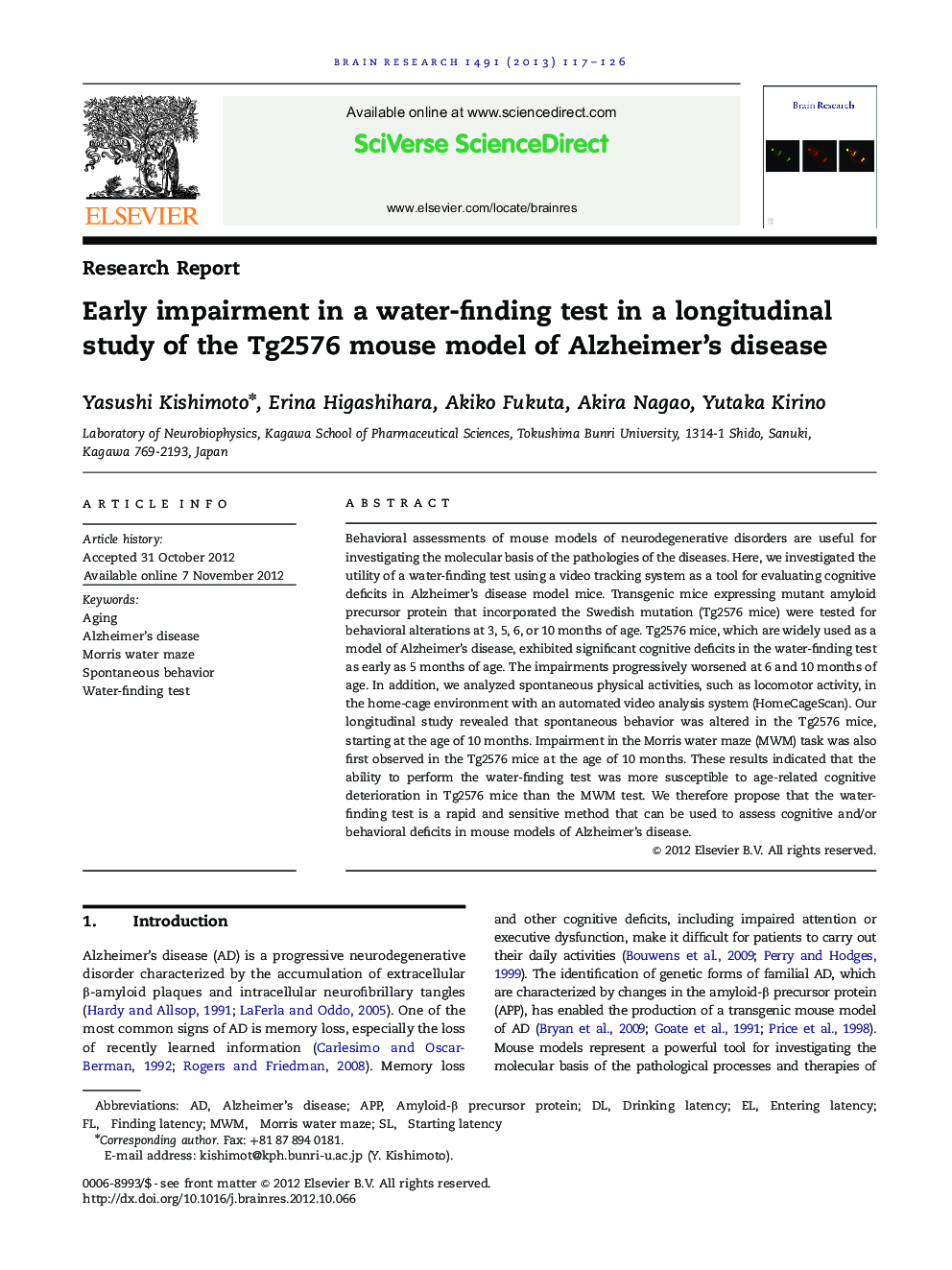| Article ID | Journal | Published Year | Pages | File Type |
|---|---|---|---|---|
| 6264017 | Brain Research | 2013 | 10 Pages |
Behavioral assessments of mouse models of neurodegenerative disorders are useful for investigating the molecular basis of the pathologies of the diseases. Here, we investigated the utility of a water-finding test using a video tracking system as a tool for evaluating cognitive deficits in Alzheimer's disease model mice. Transgenic mice expressing mutant amyloid precursor protein that incorporated the Swedish mutation (Tg2576 mice) were tested for behavioral alterations at 3, 5, 6, or 10 months of age. Tg2576 mice, which are widely used as a model of Alzheimer's disease, exhibited significant cognitive deficits in the water-finding test as early as 5 months of age. The impairments progressively worsened at 6 and 10 months of age. In addition, we analyzed spontaneous physical activities, such as locomotor activity, in the home-cage environment with an automated video analysis system (HomeCageScan). Our longitudinal study revealed that spontaneous behavior was altered in the Tg2576 mice, starting at the age of 10 months. Impairment in the Morris water maze (MWM) task was also first observed in the Tg2576 mice at the age of 10 months. These results indicated that the ability to perform the water-finding test was more susceptible to age-related cognitive deterioration in Tg2576 mice than the MWM test. We therefore propose that the water-finding test is a rapid and sensitive method that can be used to assess cognitive and/or behavioral deficits in mouse models of Alzheimer's disease.
Graphical abstractDownload high-res image (138KB)Download full-size imageHighlights⺠A longitudinal study tested the validity of water-finding test in AD model mice. ⺠The water-finding test was severely impaired in the Tg2576 mice aged 5 months. ⺠The impairment became progressively severe from 6 to 10 months of age. ⺠No abnormalities were found in the MWM or the spontaneous behavior until 10 months. ⺠The water-finding test is sensitive for AD-related cognitive decline in mice.
